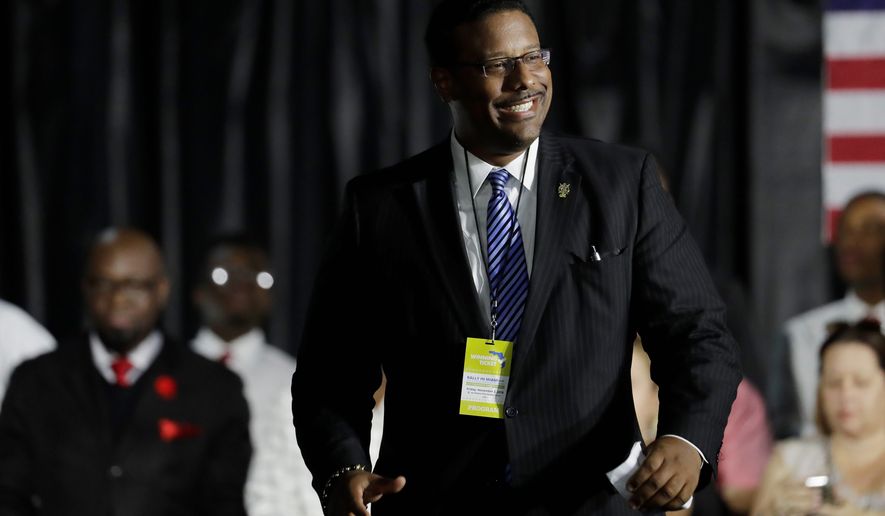Promises of leading the anti-Trump resistance weren’t a magic bullet in last week’s elections.
While Democratic attorney general candidates who campaigned on defending Obamacare were generally successful, others who vowed to be the vanguard of legal opposition to the Trump agenda didn’t fare as well, either eking out slim victories or losing altogether.
Overall, the night was good for Democrats, who emerged with what’s likely to be 26 state attorneys general, compared to Republicans’ 23 and one independent — a net loss of four for the GOP.
Yet they failed to win some big prizes such as Florida, where Democratic candidate Sean Shaw centered his campaign on joining anti-Trump lawsuits such as one accusing the president of violating the Constitution’s emoluments clause by keeping a hand in his business empire.
Republican challenger Ashley Moody easily defeated Mr. Shaw, even as other Republicans in high-profile statewide races were in nail-biters with their Democratic opponents.
But in Nevada, Democrat Aaron Ford captured the attorney general’s seat with a campaign focused on defending the Affordable Care Act. He accused his opponent, Republican Wesley Duncan of failing to promise to mount a stern defense of the 2010 health care law.
Mr. Ford cruised to victory.
The crux of the battle is a lawsuit, filed by Texas Attorney General Ken Paxton, that argues the 2012 Supreme Court decision upholding Obamacare was based on the existence of the individual mandate, a tax. But the GOP Congress eliminated the mandate in the tax cuts law last year, so Mr. Paxton and other GOP attorneys general say the rest of the law must now fall as well.
That argument didn’t even fare well in Texas, where Democratic challenger Justin Nelson nearly upset Mr. Paxton, coming within 4 percentage points of the incumbent — much closer than the state’s governor’s race.
Democrats had argued to voters that upending the Affordable Care Act would particularly hit people with pre-existing conditions, who before Obamacare had struggled to find companies willing to insure them.
The law now requires that they be able to get coverage without paying higher rates.
“There is no doubt that the Republican position related to pre-existing conditions was a significant factor,” said Karl Racine, a Democrat and the attorney general for the District of Columbia. “My early sense is that the fight over pre-existing conditions played a significant role in Wisconsin.”
That’s where Republican incumbent Brad Schimel fought a tight race with Democrat Josh Kaul, who appeared to emerge victorious.
Mark Herring, Virginia Democrat, was not up for re-election, but he also tied the success of his last campaign to Obamacare.
“I came down on the side of the Affordable Care Act,” he said. “I came down on the side of 300,000 Virginians who really need it.”
Lizzie Ulmer, a spokeswoman for the Democratic Attorneys General Association said health care was the right strategy because challenging Mr. Trump on issues like the emoluments lawsuit don’t affect average Americans.
“Here is the thing: millions of Americans understand what health care is and far fewer than that understand the emoluments clause in our Constitution, including President Trump,” she said.
Zack Roday, a spokesman for the Republican Attorneys General Association, predicted even those Democrats who didn’t campaign on anti-Trump resistance will still join those lawsuits.
“Democratic attorney generals are all different shades of the resistance movement, though some brighter than others,” he said. “There is no doubt that they are all part of that resistance. We ran on protecting the rule of law, consumer protection and public safety.”
• Jeff Mordock can be reached at jmordock@washingtontimes.com.




Please read our comment policy before commenting.